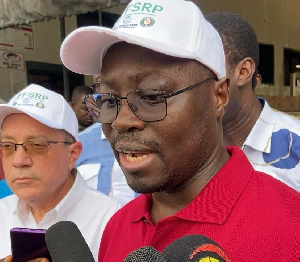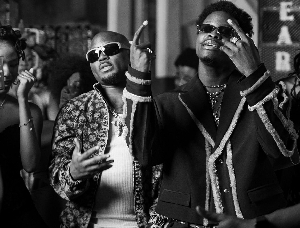By: Dan Agyeman
After five successful national elections since 1992, Ghana’s peaceful transition to democracy appears to be consolidated. We have every reason to be proud of this achievement when we compare our situation to that of sister states in our neighborhood. A key component of our democratic development is our vibrant and competitive Parliament where the battle of ideas and political disagreements take place on a daily basis. Anyone who follows the work of Parliament, either at the committee level or debates on the floor, will recognize that our Parliament is a fine example of representative government in which all shades of political opinion get their day. But that is not enough to say that Parliament is without structural and practical challenges, which renders it susceptible to criticism.
For example, in the last two years, the African Watch magazine has taken upon itself to evaluate the public work of many Ghanaian politicians including our parliamentarians, and grade their performance. This perfectly appropriate method of popular accountability has not gone down well with many of our MPs for reasons which are not difficult to fathom. The evaluations were hardly glowing. The Africa Watch’s Political Performance Index, which gave some MPs failing grades, angered the legislators for being too unilateral.
Similarly, in a recent article on Ghana web, Dr. Michael Borkor, a serial columnist, attacked Parliament for many perceived weaknesses and malfeasance. Borkor writes that “our parliamentarians are a drain on our resources”, and that “they are not helping us grow our democracy”. I disagree on both counts. My quick response to the drain on resource argument is that Borkor represents those who see only the costs of running the legislature and not its value. Ghanaians chose for ourselves this democratic form of government, and needless to say, democracy is not cheap.
The charge that Parliament is not helping us grow our democracy is totally false. On the contrary, under our constitutional set up, our parliament is performing very well under its mandate. In our republican form of government, where citizens choose their rulers, Ghanaians freely choose our President and MPs. This makes these rulers accountable to us, and that is one of the primary pillars of any viable democracy. Even if we are unable to visit our MPs and always demand public accountability, we know they will eventually come to account to us if they want to maintain their position. This is an important check on their conduct while in office, and ensures that while in office, they will pursue our interests instead of their personal interests. This is one of the criteria used or should be used in any Public Performance Index analysis. Another way in which Parliament is helping us grow our democracy is to provide a forum in which our political disputes are settled peacefully. I am aware of the often repeated mantra: “the minority will have their say, and the majority will have its way”. It is not always pretty, but jaw-jawing is still better than settling our differences in the streets and forests with weapons as we have witnessed in other countries. So far, both major political parties have experienced life on the other side of the political divide in parliament and our country continues to stand.
I venture to add that the difference between the Parliaments of the First Republic and the Fourth Republic is the relatively well balanced nature of the latter. When the voice of the opposition is not muted or suppressed, democracy has a chance to grow. But when a party in power uses methods such as the PDA to suppress and imprison opponents, and drive dissent underground, there can be no jaw-jawing, the lack of which led to the inevitability of February 1966. People like Borkor blame Parliamentarians for not initiating any legislation to address many of the economic and social issues facing the country. I say that is not the fault of Parliament or the Parliamentarians. Our Constitution does not allow anyone other than the executive to introduce any bill that implicates the Consolidated Fund. That is where I find a flaw in our Constitutional set up. Another flaw I perceive in the 1992 Constitution is the requirement that half of the Cabinet Ministers should be appointed from Parliament. The denial of the power of the purse to legislators, and the dual roles played by legislator-ministers makes our Parliament less potent and viable than it could be otherwise.
I am aware of the ascribed historical reasons behind the creation of the so called hybrid 1992 Constitution. While the 1969 Constitution was like British Parliamentary democracy where all the member of the executive were also legislators, the 1979 Constitution separated the executive and Parliament like the American system. It has been posited that the rejection of a budget by the Limann administration was so unheard of that the framers of the 1992 Constitution were determined to avoid a repeat of the Limann dilemma. So they combined aspects of the British and American systems to create the current hybrid system. I want to respectfully state that the framers got it wrong on this issue, and despite the emotional and romantic notions or “our own brand of democracy”, the hybrid system deprives our Parliament of its third important function. That is to act as a check on the power of the executive rather than the majority acting as a rubber stamp to executive actions.
In conclusion, I would suggest an amendment to the constitution to really separate the powers and personnel of the three branches of government, and grant Parliament the power of the purse as one of the tools for reigning in executive authority. But even without the suggested changes, our Parliament is still useful in entrenching our democracy. I liken it to the General Assembly of the United Nations, which even though it lacks the veto powers of the Security Council, is still more than a talking shop which has helped keep the peace since the Second World War. We can strengthen it but not denigrate or reject it.
Opinions of Tuesday, 29 November 2011
Columnist: Agyeman, Dan














